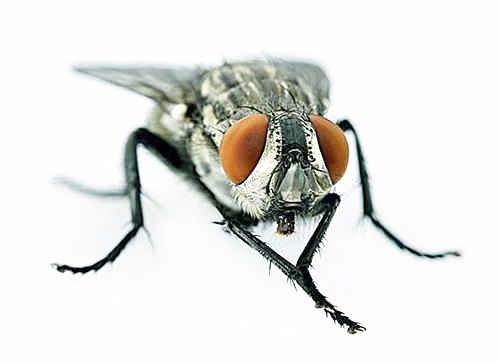Why are the flies so bad this year?

Weather Conditions
Weather plays a significant role in the proliferation of flies. Warmer temperatures and increased humidity create an ideal environment for flies to breed and thrive. Mild winters fail to kill off the existing fly population, allowing them to emerge in greater numbers when the weather warms up.
Increased Rainfall
Higher levels of precipitation can lead to more standing water, which serves as a breeding ground for flies. Moist environments are particularly attractive to species – example: houseflies and fruit flies, which lay their eggs in damp organic material.
Abundance of Food Sources
The availability of food sources directly impacts fly populations. Improperly stored garbage, uncovered compost, and outdoor dining areas can attract flies. The more food waste and organic material present, the more opportunities flies have to lay eggs and reproduce.
Changes in Agricultural Practices
Changes in farming techniques, example: the increased use of organic farming methods and the reduction of pesticide use, can also contribute to higher fly populations. Organic matter used in farming can serve as breeding sites, and fewer pesticides mean fewer fly predators.
Urbanization and Human Activity
Urban environments often provide numerous opportunities for flies to find food and breeding sites. Increased human activity, example: construction and waste generation, can disrupt natural habitats and attract flies to populated areas.
What to Do About Flies?

- Maintain Cleanliness
Keep your living and working environments clean. Ensure that garbage is properly sealed and disposed of regularly. Clean up spills and food scraps immediately, and make sure to store food in airtight containers.
- Use Fly Traps and Repellents
Various fly traps and repellents are available that can help control fly populations. Sticky traps, electric fly zappers, and chemical repellents can be effective. Natural repellents like essential oils (e.g., lavender, eucalyptus, and peppermint) can also deter flies.
- Eliminate Breeding Sites
Identify and eliminate potential breeding sites. This includes cleaning up standing water, properly maintaining compost piles, and regularly cleaning pet areas. Reducing clutter around the house can also minimize breeding spots.
- Screen Windows and Doors
Installing screens on windows and doors helps keep flies out of your home. Repair any holes or tears in existing screens to ensure they are effective.
- Regular Pest Control
Consider hiring professional pest control services if fly populations are particularly problematic. Pest control experts can identify and treat areas where flies are breeding and provide long-term solutions.
Interesting Facts About Flies

- Incredible Speed
Flies are incredibly fast for their size. They can flap their wings up to 200 times per second, which enables them to maneuver quickly and escape predators with ease.
- Short Lifespan
Despite their annoyance, flies have relatively short lifespans. Most common houseflies live for about 15 to 30 days, but during this time, they can lay hundreds of eggs, leading to rapid population growth.
- Global Presence
Flies are found all over the world, in virtually every type of habitat. They have adjusted to diverse environments, ranging from tropical rainforests to dry deserts.
- Important Decomposers
While often seen as pests, flies play an important role in the ecosystem as decomposers. They help break down and recycle organic matter, contributing to nutrient cycling in the environment.
- Disease Vectors
Flies can carry and transmit various diseases to humans and animals. They pick up pathogens from waste and decaying matter and can transfer these to food and surfaces, posing health risks.
By understanding the reasons behind the high fly populations and taking proactive steps to control them, you can mitigate their impact and maintain a more comfortable and hygienic environment.












